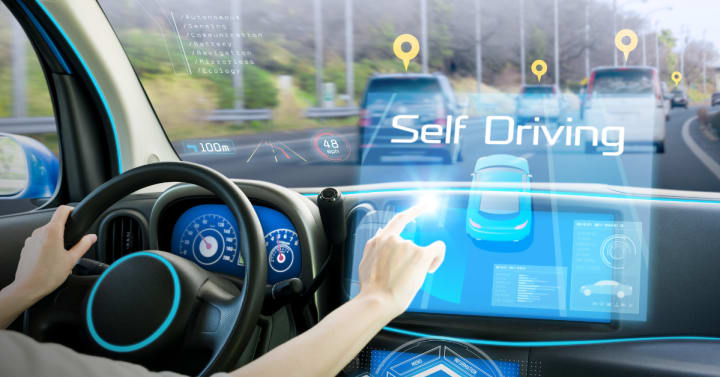How to choose an OS for software development in automotive
Bertrand Boisseau
on 12 July 2023
Tags: Automotive
Why companies in automotive prefer Ubuntu
Automotive as an industry is constantly looking for ways to improve its processes and efficiency. The one common tool that is at the intersection of all software development activities is the operating system (OS). From advanced simulation tools to new vehicle designs, the OS has to be reliable and provide the best platforms for a maximum number of purposes.
Engineers and IT professionals have different requirements. Developers, for instance, tend to prefer Linux. Yet, Windows still dominates the professional desktop space and has management tooling IT admins are familiar with. How then, can you empower your team with an OS that is compatible, flexible, scalable and easy to use for software development in automotive? In this blog post, we’ll go through the key considerations to keep in mind when choosing a Linux operating system. We’ll also explore how Ubuntu’s feature set can help you meet those needs.
Securing your workflow and software supply chain
Making sure your engineers and developers are using secure machines is a critical aspect of IT management. When considering an OS, you want to ensure that it receives high-quality security patches as fast and seamlessly as possible. It is also important to consider the testing procedures that the OS has gone through in order to test it against known vulnerabilities.
Ubuntu is considered the most popular and trusted operating system for developers. Automotive companies rely heavily on Ubuntu when it comes to developing and testing software and new technologies. With Ubuntu Pro, organisations get 10 years of security maintenance on the Main Ubuntu repository and the Universe repository, which includes popular open source applications and toolchains. This helps your developers pull key open source software building blocks from a secure source.
Enhance your software delivery with DevSecOps tools
Speaking of security, one of the software development approaches that is resonating with the automotive industry is DevSecOps, as it emphasises security and QA throughout every stage of the product lifecycle. An ideal OS should also integrate easily with leading DevSecOps tools that enable your company to assess in a continuous manner the security levels at each stage of your development pipeline.
Popular CI/CD tools such as Jenkins, Ansible or GitLab integrate easily with Ubuntu. Ubuntu enables teams to automate their testing, patching and orchestration tasks while streamlining configuration management, providing better efficiency in software delivery pipelines.
Securing your IT management with best level access management

Authentication is also a key part of a strong IT management system, as it can prevent unauthorised access to sensitive data or equipment operations. Unauthorised access to manufacturing data, machines or confidential information can lead to potentially catastrophic consequences for a company.
A reliable IT management operation requires robust user management that includes granular levels of permissions with various access controls on different systems and resources. Most companies use Active Directory, which is a Microsoft solution for account management that simplifies the manageability of the multiple desktops and laptops via a centralised administration, saving precious time.
By integrating Active Directory, Ubuntu extends basic Linux capabilities and enables user authentication and authorisation for your developers running on Ubuntu. When combined with Landscape, IT managers can manage and administrate thousands of machines. Landscape provides automations for providing security patches to your fleet of computers, as well as compliance automations.
Unlocking remote desktop efficiency with VDIs
With remote teams, Virtual Desktop Infrastructures (VDIs) are all the rage. Thanks to VDIs, your developers and engineers can have access to virtual workplaces from anywhere in the world. Benefitting from consistent performance, as long as they have sufficient bandwidth. The interesting part of VDIs is that they allow IT departments to centrally manage the different virtual environments, while ensuring they are always up-to-date, maintained and secure, increasing your company’s efficiency and productivity.
Thanks to Canonical’s partnership with AWS, developers can also access an Ubuntu Desktop environment on Amazon WorkSpaces to speed up their code deployment.
Amazing car renderings
By combining VDIs with GPU-acceleration, automotive companies can have access to enhanced productivity and advanced graphics acceleration for 3D intensive purposes. Car rendering also involves photorealistic renderings, which require advanced graphical processing capabilities.
Thanks to Canonical’s partnership with NVIDIA, Ubuntu KVM, one of the leading hypervisors, comes with native NVIDIA vGPU software availability, helping your company scale your infrastructure. Ubuntu is compatible with most 3D modelling and animating tools in order to allow designers and engineers to build highly detailed models and simulation environments.
Pushing Computational Fluid Dynamics to the limit
VDI-powered renderings are also used for aerodynamics and computational fluid dynamics (CFD), which analyse how fluids behave when they interact with an object. CFD has multiple applications in automotive, including the airflow simulation around the car’s body, assessing the performance of the cooling systems, but also optimising the fuel injection for internal combustion engine (ICE) vehicles.
Aerodynamics are critical for electric vehicles (EVs) as the lower the friction, the lower the power required, hence the greater the range. CFD is also used to measure the rolling resistance from tires; EV tires provide lower rolling resistance – all of which needs to be studied and optimised.
The use cases for VDIs mentioned above can be implemented within your IT policy and facilitated using a unified platform.
Enabling autonomous driving with AI/ML

The rise of driving assistance technologies and the huge investments in autonomous driving are increasing demand for Artificial Intelligence (AI) and Machine Learning (ML) tools. TensorFlow and PyTorch are among the most popular ones.
Automotive developers are using these tools to build AI models that can detect objects like obstacles and traffic signs. Likewise, they are also used to anticipate road conditions, driving hazards, and unexpected events. When it comes to running these algorithms, it’s often required to have low latency and close to real-time decision-making.
Most (if not all) deep learning frameworks are being developed and used on Ubuntu. Which is why they run natively on Ubuntu. Thanks to the support of the PREEMPT-RT patch, Ubuntu can ensure preemptive and deterministic operations to the process as well.
[Watch our webinar on automotive use cases for real-time Linux]
Interface development for connected cars
The infotainment system is very important for connected vehicles. Indeed, the multimedia system is the first point of interaction between the driver (or passengers) and the vehicle. In order to develop an engaging user experience, developers often rely on graphical tools and libraries like Unity and Qt. The step that developers are struggling with though is porting to the vehicle’s OS – depending on the complexity of the device’s OS, porting can be quite costly and time-consuming.
Unity and Qt, the popular rendering tools used for creating graphical interfaces for automotive, run natively on Ubuntu. And if you wish to streamline your porting phase, for developments done on Ubuntu, deploying on Ubuntu (Classic or Core) does not require additional complex adaptations that could be required for deployment on another OS. This simplifies the process, hence reducing the costs for implementation and accelerating development cycles.
Bringing Ubuntu to your automotive company
Ubuntu is one of the most widely used Linux operating systems and a leading choice among professional developers. It has a wide feature set that can help your automotive company improve desktop management and drive innovation. If you are using Windows as your primary OS, Ubuntu also has a set of tools that allow your developers to use Linux in a compliant way.
Windows Subsystem for Linux (WSL) allows your developers to seamlessly run Ubuntu on top of Windows. That way, your teams get access to the numerous tools described above without needing to change the OS of their machines. WSL was built so that users could benefit from a seamless and smooth access to the best tools and workflows.
One of the automotive industry’s continuous challenges is cost-cutting. With the high number of resources required for IT management and the increasing number of connected vehicles generating massive amounts of data, the maintenance of an effective IT infrastructure is expensive and time-consuming. Ubuntu Pro and WSL offer practical ways to reduce expenses while improving the efficiency of the whole process, helping developers focus on building great products. Moreover, IT managers usually love WSL as it allows them to propose interoperability without requiring additional resources, therefore reducing costs.
Ubuntu combines all that makes Linux great in a professional package. If you want to learn more about how your company can get access to trusted manageability for IT with Ubuntu Pro, download our white paper.
Talk to us today
Interested in running Ubuntu in your organisation?
Newsletter signup
Related posts
From cloud to dashboard: experience the future of infotainment development at CES 2026
This year, we’re excited to show a demo that combines the strengths of both Anbox Cloud and Rightware’s Kanzi, the industry-leading software for creating...
Using ISO/SAE 21434 to stay ahead of the Cyber Resilience Act
How ISO/SAE 21434 helps you get ready for the Cyber Resilience Act If you work in automotive, you’ve probably already heard of the CRA – the EU’s Cyber...
Raising the bar for automotive cybersecurity in open source – Canonical’s ISO/SAE 21434 certification
Cybersecurity in the automotive world isn’t just a best practice anymore – it’s a regulatory imperative. With vehicles becoming software-defined platforms,...
